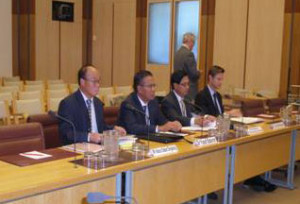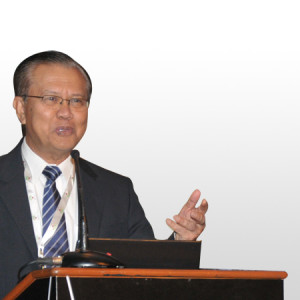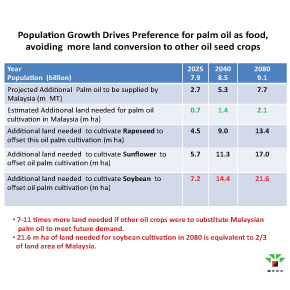Plain speaking about palm oil
 I recall some years ago that MPOC was tasked with preventing the Truth in Labelling – Palm Oil Bill from being passed by the Australian Senate. Senator Nick Xenophon had introduced the Bill in 2009, seeking the mandatory labelling of palm oil in any product sold in Australia or New Zealand. This was an outcome of campaigns by zoos against palm oil.
I recall some years ago that MPOC was tasked with preventing the Truth in Labelling – Palm Oil Bill from being passed by the Australian Senate. Senator Nick Xenophon had introduced the Bill in 2009, seeking the mandatory labelling of palm oil in any product sold in Australia or New Zealand. This was an outcome of campaigns by zoos against palm oil.
The proposed legislation would have singled out palm oil as the only ingredient requiring mandatory labeling on grounds of its alleged environmental impact. Given that Australia produces no palm oil and little vegetable oil, the attempt clearly constituted a trade barrier.
It unfairly targeted an industry that is at the heart of efforts to alleviate poverty in Malaysia. It would have jeopardised the livelihood of hundreds of thousands of workers in the oil palm industry and undermined a sector that is critical to Malaysia’s economic development. It would have also imposed higher costs on Australian and Malaysian businesses, as well as on Australian consumers.
Malaysia was invited to testify before the Senate Community Affairs Legislation Committee on Food Labelling. It was asked to provide further evidence at a public hearing held in Canberra, in relation to a submission that had been made on the Bill.
It was a valuable opportunity for MPOC to put together a team to represent the Malaysian palm oil industry and convey its message directly before the government, public and media in Australia. Those who appeared before the Committee to outline concerns and the impact of the Bill on the Malaysian palm oil industry included Dato’ Salman Ahmad, then High Commissioner of Malaysia; Tan Sri Datuk Dr Yusof Basiron, Chief Executive Officer, MPOC; Dato Carl Bek-Nielsen, Vice Chairman & Chief Executive Director, United Plantation Bhd; and Datu Vasco Sabat Singkang, General manager, Sarawak Land Consolidation and Rehabilitation Authority (SALCRA).
The team was aware that this was a golden opportunity to correct the misleading information that was being circulated among the Senators. They knew that they would be up against the main protagonist, Senator Xenophon. They had to rebut the allegations with plain facts and clear explanations that could be easily absorbed by the Senators, who provide input into policy making processes that have an impact on trade.
It did not come as a surprise during the hearing that the team was requested to provide photographs of an oil palm tree and a fresh fruit bunch. We sometimes take it for granted that others have sufficient information about palm oil; in reality, this may not be the case. People need to be constantly educated so that they receive the right information in a timely manner.
At the hearing, the MPOC CEO spelt out the consequences of the Bill for Malaysia and its oil palm sector. He demonstrated the negative impact that labeling would have on small farmers in particular, and why Malaysia relies on the industry for economic growth. Some paragraphs of his testimony left a profound impact on the Senators and ultimately on the decision they made.
The greatest impact of this Bill will be to single out palm oil as the only product in Australia to mandatorily be labelled for reasons other than health or nutrition, and to severely hinder Malaysian Government’s attempts to utilise palm oil as a means for alleviating poverty in our country.
He sought to demonstrate the intimate role that environmental NGOs had played in advancing the Bill through campaigns that promote misinformation and ignore even the most basic needs of Malaysia’s rural poor and landless farmers.
[The Bill] may make adherents and supporters of Greenpeace and World Wildlife Fund have a great degree of self-satisfaction when sipping their skinny lattes, but to 570,000 Malaysians and their families there is no self-satisfaction. All they see is a threat to the livelihoods.
Do the international NGO’s – Greenpeace and WWF – want to keep people in poverty?
Do they view the people of my country as participants in some sort of case study?
Malaysia pledged at the United Nations Earth Summit in 1992 to retain at least 50% of its total land area under forest, and that plantation crops would only be permitted on the land set aside for agriculture. Malaysia has greatly exceeded this target considering that 56% of its land is still under forest.
Forty-three percent of oil palm plantations are owned by smallholders. Oil palm companies have invested significantly in schools, roads, water and hospitals for their workers. The palm oil industry directly employs over half a million Malaysians. Hundreds of thousands more rely on it for their income.
In addressing NGO claims that oil palm plantations are a major threat to the orang utan, he said the proposed legislation would have no benefit for the environment, forests or orang utan population of Malaysia.
It is unfortunate that the orang utan have been used, or more accurately misused, in this debate.
Our industry is not a rapacious destroyer of either forests or the orang utan. We have been accused of this, we have been pilloried for it – and it is totally inaccurate.
The Senate Committee was taken aback by the strong testimony by the distinguished panel of Malaysian representatives. The Bill was eventually dropped.
Many people have continued to work behind the scenes to ensure that similar attempts do not succeed in maligning the palm oil industry. In this respect, several questions remain relevant:
- Shouldn’t those who work in the oil palm industry have the right to improve their way of life, and shouldn’t they be given the opportunity to do so?
- Don’t they deserve the means to provide for their families and the dignity of a steady job?
- Don’t they, and their children, merit the stability of a more prosperous future?
Belvinder Sron is the Director of Branding and Promotions at MPOC. She also handles communications and issues management.










Leave a Reply